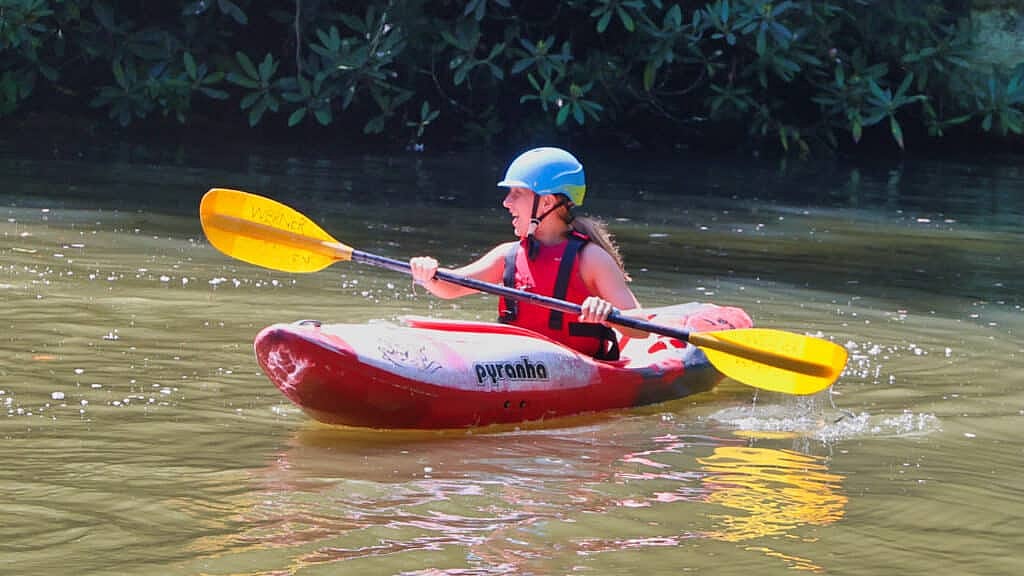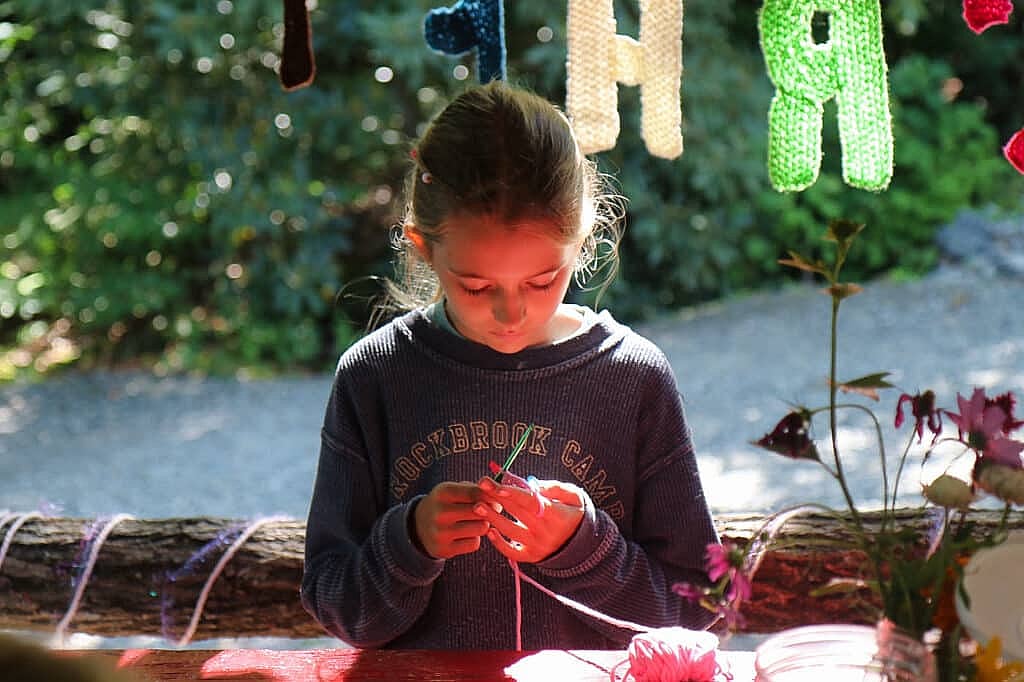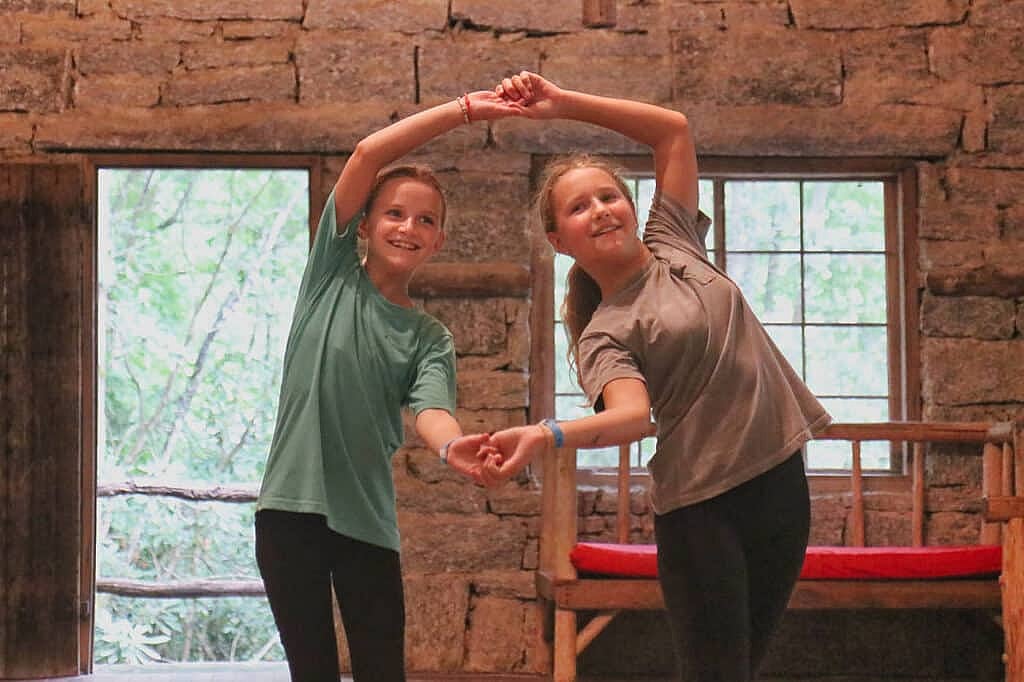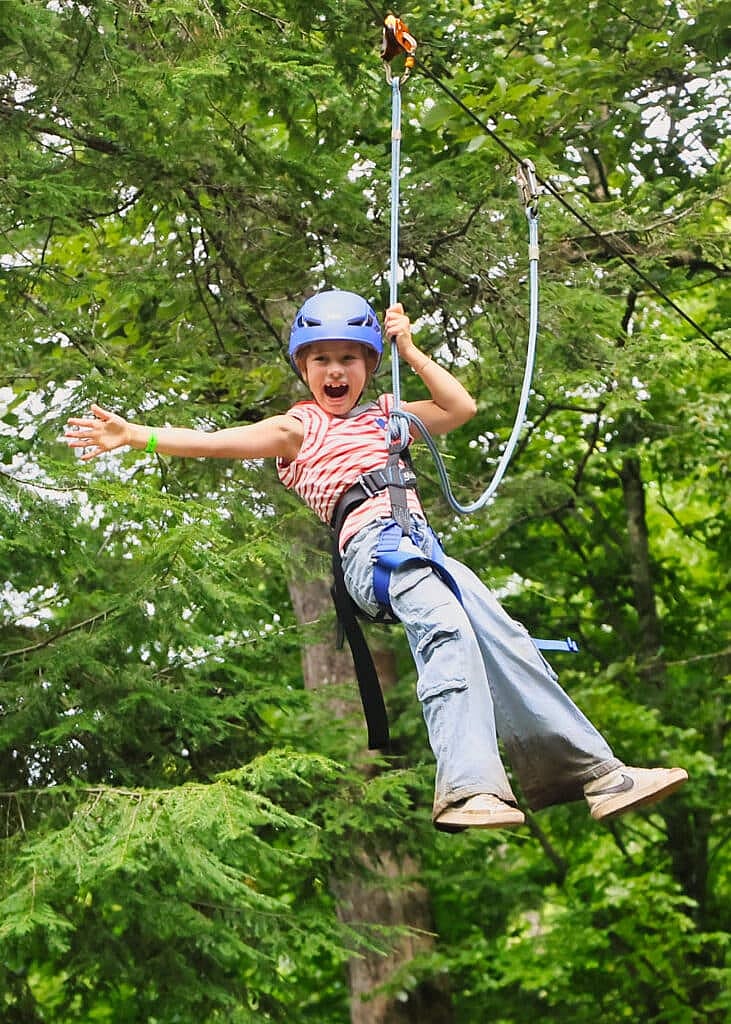Content Ideas and Common Traps
By Jeff Carter
Out on the porch of the Rockbrook dining hall is a row of mailboxes, one for every camper and staff member at camp. Every day after lunch, everyone takes time to peer into their box hoping there’s some mail to find. It could be a card or letter, or an email that the office printed and delivered to the box. This is a highlight of the day because it’s exciting to receive a surprise gift, no matter how small, and think, “I wonder who it’s from.” Receiving letters from home or other friends and family has always been a part of the summer camp experience.


Most parents know they should write to their kids when they’re away at summer camp. But do they know how to do it? Do they know what to say, and perhaps more importantly, what not to say? They may have questions like “How often should I write?” or “Should I tell them about world events, or shield them from troubling news?” In fact, there are good answers here, helpful guidelines to ensure parent letters encourage a camper’s independence while still maintaining a connection to loved ones at home. A great camp letter from home finds this balance between support and the self-confidence that grows while away. Here’s how to do it.
Your goal when writing to your child at summer camp should be to encourage and support her in this new experience. You want to provide some reassurance as she explores and at the same time be careful not to pull her back home. You want to be upbeat about her abilities to take full advantage of camp life, to try new activities, meet new people, and overcome any challenges that might pop up. It’s through your confidence in her that she will build her own confidence. Home serves as an anchor of love and support as she navigates camp life away. A phrase like “I know you’ll figure it out” goes a long way. Remind her of her strengths: “You’re always so kind and understanding” or “You know what being a good friend means,” for example. You are expressing your trust in her, and in her success at camp.


One trap to avoid is writing too often to your child at camp. Yes, more letters from home isn’t always better. Research has shown that too much communication from parents increases the likelihood of homesickness. After all, you really don’t want your camper thinking about you instead of immersing herself in camp life. It seems counter intuitive, but ideally your camper loves camp so much, they forget about life at home. Too many letters from home, especially the wrong kind of letters, will surely undermine this ideal.
What to Include in your letters
With all these goals in mind, what should parents write about in their letters to camp? What are some content ideas that work?
- Describe boring home updates – Tell her how everything is normal at home, all routine sorts of things happening, with very little excitement. The idea is to make camp seem way more fun and exciting by comparison… Because it is! For example, “Dad fixed the sink,” or “We reorganized the garage,” or “I’ve been working in the garden.” But be careful not to make your letter a highlight reel of everything she’s missing while away.
- Ask questions about camp – This is a great way to keep the focus on camp. Show your interest in all of the things going on at camp. Reference what you’ve seen in the photo gallery. For example, you can ask “Tried climbing yet?” or “What’s the best muffin flavor so far?” or “I saw a photo of you weaving. That’s so cool! What are you making?” Show your camper you are curious and excited about all of the new experiences she’s having at camp.
- Tell her you’re proud – It’s a great accomplishment just being at camp, making so many decisions on her own, navigating the social aspects, taking care of everything without parents guiding every step. You should be proud of your camper! And she should be proud of herself! Tell her about it. “It’s cool you’re doing this on your own.” “I’m so happy you’re trying horseback riding.” “I saw a photo of you shooting archery. That’s amazing!”
- Add a bit of fun – This is your chance to get creative. Toss in a new “dad joke,” tell a silly riddle, or compile a funny “top 5 list.” You are providing a little entertainment, or a chuckle she can share with cabin mates and friends. “Q: Where do pirates get their hooks? A: Second-hand stores!” “It really takes guts to be an organ donor.” “I ate a clock the other day. It was very time consuming.” “Here are my top 5 hidden talents.” Word games for older campers, brainteasers and other puzzles are always fun to receive.
What to Avoid in Your Letters
After these good ideas, there are also things to avoid. Some topics can stir up emotions in kids away from home. They might feel guilty about being away, or worried about how parents are doing, for example. What should parents NOT talk about in their letters to camp?
- News of exciting events they’re missing – Nobody enjoys skipping something they like, especially kids who might already be missing the comforts of home. Try to avoid making your camper feel torn about what’s happening without her. Don’t say, for example, “We’re going to the beach this weekend” or “We ate dinner at your favorite restaurant.” Feeling left out is hard for everyone.
- Emotional manipulation – The risk here is that your feelings of missing your camper will make her feel guilty. Yes you miss them, and you love them, but your job is to encourage their independence while they are away at camp. Don’t undermine that by suggesting people at home aren’t doing well. Avoid saying things like, “The house feels so empty without you,’ or “Your sister (or family pet) is sad and really misses you,” or “I don’t know what to do without you here.”
- Vague concerns – Avoid discussing your own specific concerns, even in vague terms. The adult world can be a jumble of anxieties, but camp is designed to be a break from all that. Don’t bring up problems or issues campers can’t solve or control. Some campers are easily worried about life outside of camp, so don’t hint at anything concerning, even if you think they should know eventually. For example, don’t say, “There’s a lot going on, but we’ll tell you later,” or “Grandma was in the hospital, but she’s fine now.”
- Pressure and expectations – Be careful not to pressure your camper with high expectations for her time at camp. You want camp to be her experience, something self-directed and enjoyed at her own pace. Let her choices be her own. Similarly, avoid nagging her about schoolwork, room cleaning, or other home responsibilities. For example, avoid asking, “Why are you taking so many crafts activities?” or “Why aren’t you writing me back?” or “There’s a big pile of summer reading books here for you.”
- Big things happening at home or in the world – Generally, waiting for your camper to return home is the best time to discuss troubling news. Camp is a haven, a happy place immune from heavy things in the world like natural disasters, sad family events, and incidents of violence. It’s easy to understand why it’s best to avoid discussing anything that might be frightening for a child. Avoid speculative language that may feed anxiety. If you feel you must share some troubling news with your camper, please reach out to us beforehand to coordinate how we can support the process.
Writing to your camper doesn’t have to be complicated. Instead, just keep these tips in mind and rest assured that “getting it right” is mostly about expressing your optimism about the camp experience, and your firm belief in your child.
By writing this kind of encouraging letter, by cheering them on from afar, you’re helping your camper get more out of camp.
So go ahead, write her a letter. It will truly mean a lot to her.



